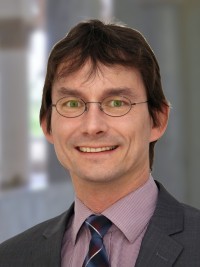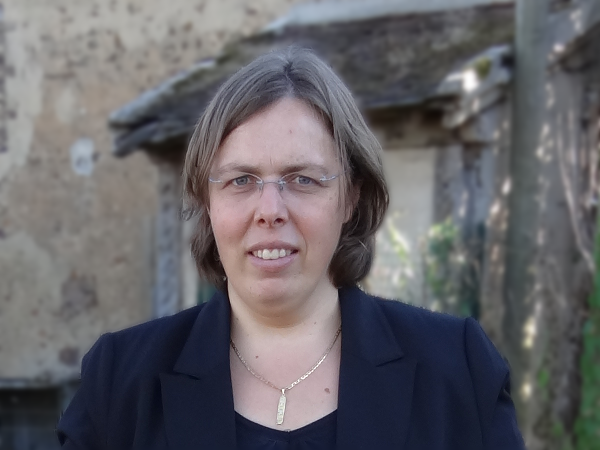Dirk Beyer

Full Professor, Head of Research Chair (Lehrstuhlinhaber), Software and Computational Systems Lab, Department of Computer Science, Ludwig-Maximilians-Universität München (LMU Munich), Germany
The Transformation Game: Joining Forces for Verification
The presentation consists of two parts. The first part makes a case for transformation as a key verification technology. Transformations are used to convey information across different abstraction layers and to underpin the correctness, efficiency, and usability of formal-methods tools. The lack of modularity incurs repeated engineering effort and the risk of bugs in the process of ‘reinventing the wheel’. It can be seen as a new paradigm to construct verification technology by employing standardized formats and interfaces for information exchange, and by building modular transformers between verification artifacts. Our vision is an ecosystem of reusable verification components that supports joining forces of all available techniques, allows agile development of new tools, and provides a common ground to evaluate and compare future scientific advancements: via modular transformation.
In a second part, to support the transformation approach, we describe an approach to collect and conserve tools for formal methods. We collect and maintain essential data about tools for formal methods in a central repository, called FM-Tools, available at https://fm-tools.sosy-lab.org. The repository contains metadata, such as which tools are available, which versions are advertized for each tool, and what command-line arguments to use for default usage. The actual tool executables are stored in tool archives at Zenodo, and for technically deep documentation, references point to archived publications on project web sites. With this approach, we can conserve today’s tools for the future.
Supporting Material:
- Part 1: The Transformation Game: Joining Forces for Verification
- Part 2: Find, Use, and Conserve Tools for Formal Methods
Short biography
Dirk Beyer is Full Professor of Computer Science and has a Research Chair for Software and Computational-Systems Engineering at LMU Munich, Germany (since 2016). Before, he was Full Professor of Computer Science at University of Passau, Germany (2009-2016). He was Assistant and Associate Professor at Simon Fraser University, B.C., Canada (2006-2009), and Postdoctoral Researcher at EPFL in Lausanne, Switzerland (2004-2006) and at the University of California, Berkeley, USA (2003-2004), in the group of Tom Henzinger. Dirk Beyer holds a Dipl.-Inf. degree (1998) and a Dr. rer. nat. degree (2002) in Computer Science from the Brandenburg University of Technology in Cottbus, Germany. In 1998 he was Software Engineer with Siemens AG, SBS Dept. Major Projects in Dresden, Germany. His research focuses on models, algorithms, and tools for the construction and analysis of reliable software systems. He is architect, designer, and implementor of several successful tools. For example, CrocoPat is the first efficient interpreter for relational programming, BenchExec is a framework for reliable benchmarking, and CPAchecker and BLAST are two well-known and successful software model checkers.
Patricia Bouyer

Senior Researcher, CNRS, Director of LMF, ENS Paris-Saclay, France
On the Probabilistic and Statistical Verification of Infinite Markov Chains
The verification of infinite-state Markov chains is a challenging problem, even when those chains are described by structured high-level models. In 2007, Abdulla et al. introduced the concept of decisiveness (Log. Meth. Comput. Sci.), and showed that a natural approximation scheme could be applied to infinite Markov chains that are decisive. This was, up to our knowledge, the unique generic scheme that could be widely applied to (decisive) infinite Markov chains providing guarantees on the computed values (under some mild assumptions for effectiveness). On the other hand, statistical model-checking is a very efficient method that can be used for estimating probabilities in stochastic systems (Younes et al., SBMF’10, Inf. Comput. 2006). We explain in this talk that decisiveness is also a key concept that allows to apply such statistical methods to infinite Markov chains.
While decisiveness is a crucial property, not all Markov chains are decisive, and it is therefore desirable to propose methods to analyze non-decisive Markov chains. Importance sampling (Kahn and Harris, Natl. Bureau Stands. 1951) is a method which has been proposed to improve efficiency of statistical model-checking, in particular for estimating probabilities of rare events in stochastic systems. The idea is to biase the original chain, and to estimate the probabilities in the biased chain; guarantees can sometimes be given, as studied for instance in (Barbot, Haddad, and Picaronny, TACAS’12).
In this talk, we will explain how we use the importance sampling idea to turn a non-decisive Markov chain into a biased decisive Markov chain, in which we can estimate probabilities (with guarantees). We apply the general approach to a class of probabilistic pushdown automata. Our algorithms have been implemented in the tool Cosmos (Ballarini et al., Perf. Eval. 2015), and we discuss the methodology for experiments as well as our (partial) conclusions.
Short biography
Patricia Bouyer holds a PhD in Computer Science from ENS Cachan (2002). She has been a CNRS researcher from 2002 to 2020 at “Laboratoire Spécification et Vérification” (LSV, CNRS & ENS Cachan, France). She is now the head of the “Laboratoire Méthodes Formelles” (LMF, Université Paris-Saclay, CNRS, ENS Paris-Saclay, France). She has held visiting positions at Aalborg University (Denmark) in 2002 and Oxford University (UK) in 2007. Patricia Bouyer’s main research topics are model checking, game theory, and quantitative aspects of verification. She has been the principal investigator of ERC Starting Grant project EQualIS (2013-2019). She was the recipient of a Marie Curie fellowship in 2006, of the Bronze medal of CNRS in 2007 and of the Presburger Award given by the EATCS in 2011.
Marco Montali

Full Professor in Computer Engineering, Free University of Bozen-Bolzano, Italy
Automated Reasoning for Data-Aware Petri Nets
The focus on work processes in process science is increasingly shifting from a case-centric, pure control-flow perspective, to a data-aware setting where (possibly multiple interrelated) objects and their properties are updated by and influence the process. Data may range from simple attributes (such as strings or numbers) to complex data structures like relational databases. Modelling, analysis, and mining of such data-aware processes call for formalisms and techniques that simultaneously tackle time/dynamics and the interplay with these different forms of data. In this short paper, we focus on data-aware work processes whose underlying control-flow backbone is described as a Petri net. We overview the main modelling requirements and constructs emerging in different proposals, ranging from case- to object-centric processes. We then summarize how artificial intelligence techniques from automated reasoning have been employed and further developed to obtain foundational and practical results in data-aware process analysis and mining.
Short biography
Marco Montali is a Full Professor in Computer Engineering in the Faculty of Engineering at the Free University of Bozen-Bolzano, Italy, where he also coordinates the BSc Program in Informatics and Management of Digital Business. His research is in artificial intelligence and information systems for the modelling, analysis, and mining of processes and agents. The Leitmotiv is the combination of model-driven and data-driven techniques to engineer trustworthy and reliable information systems and agents, focusing on their dynamics over time. He has served as PC Chair of BPM 2018, RuleML+RR 2019, ICPM 2020, and CBI 2021, as General Chair of ICPM 2022 and EDOC 2022, and was for 3 years steering committee member of the IEEE task force on process mining. He is co-author of more than 250 papers, many of which in top-notch conferences (AAAI, IJCAI, ECAI, PODS, BPM, CAiSE, ICPM) and journals (IS, TKDE, JAIR, TOSEM), and recipient of 10 best paper awards and 2 test-of-time awards. He received the 2015 “Marco Somalvico” award, given by the Italian Association of Artificial Intelligence to the best under 35 Italian researcher in artificial intelligence. He regularly meets the general public, industries, and students to discuss about artificial intelligence and its societal implications.